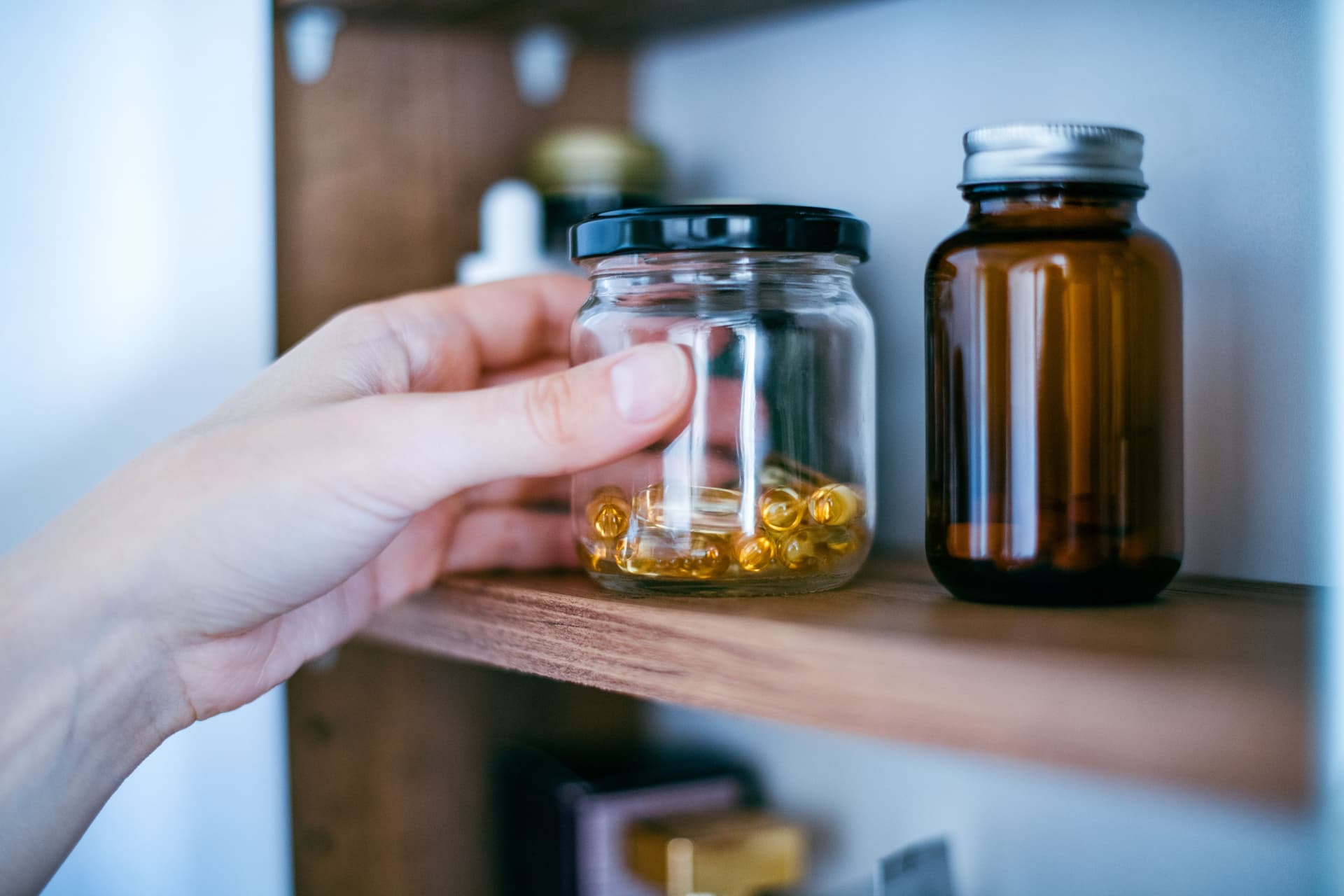Shelf Care vs Self Care (And Why It’s Not Either/Or)
Shelf Care vs Self Care (And Why It’s Not Either/Or)
We’ve all done it. Stood in front of a shelf lined with powders, serums, tinctures, and supplements hoping this might finally be the thing that makes us feel like ourselves again. In some ways, that shelf is comforting. When nothing else is working, a purchase can feel like a promise. Like proof that we’re trying. That we’re doing something. But control isn’t the same as care.
Control is about fixing. Care is about staying in conversation - with your body, your needs, your rhythms. And when it comes to our health, we need more of the latter. I remember once standing in the supplement aisle, Googling ingredients for energy, stress, and sleep simultaneously. I didn’t know what I needed, just that I needed something. That’s the trap of shelf care: it mimics empowerment while masking confusion. But the truth is : shelf care alone isn’t always self-care. In today’s wellness economy, it’s easy to confuse the two. We conflate health with purchase decisions, effort with aesthetics. The tray full of adaptogens, the mindfulness books, the colour-coded pill box; everything that feels like progress. And sometimes they are. But other times, they’re checkboxes we tick, hoping they will fix something we can’t quite name. And who can blame us? We live in a culture that rewards productivity over presence, and aesthetics over inquiry. We’re told to “listen to our bodies” but also to optimise, hustle, and never fall behind. Shelf care offers quick wins in a world that rarely pauses long enough to notice how we really feel. It’s not shallow—it’s survival. But when care becomes a to do list, it stops being care.
Shelf care is easy to measure. It photographs well. Fits into routines. It can be tracked, logged, reordered. Self-care? That’s murkier. You can’t bottle boundary-setting. You can’t photograph emotional regulation. You can’t TikTok your way through perimenopause. And so it becomes the part of care we ignore, not because it’s less important, but because it’s harder to measure or monetize.
But here’s the truth: shelf care is only as powerful as the self-care you pair it with. That nightly supplement won’t help if your nervous system is running on empty. That serum won’t reverse the effects of chronic stress. And no ritual is complete without intention. In our rush to optimise, we’ve forgotten to observe. In our obsession with products, we’ve stopped asking whether they’re even working. Self-care is the system around the shelf. It is the wind-down routine before bed. It is the pause before reacting. It is the small, unglamorous, often invisible ways we learn to live in alignment with ourselves.It doesn’t always feel like progress - but it lays the foundation for it. And perhaps most importantly, self-care is labour. Not the kind that gets applause, but the kind that keeps us grounded. For many women especially, it’s a form of invisible maintenance: the quiet work of checking in with your body before it screams, of staying whole in a world that keeps asking you to split yourself in two. Let’s be clear: this isn’t a takedown of supplements or wellness tools. It’s not a call to clear your cabinets. It’s a reminder that these products work best when they’re part of something bigger. A practice. A rhythm. A relationship - with your body, your energy, and your needs. Because when shelf care and self-care meet, something powerful happens. You stop outsourcing your health to trends and start tuning into what you really need. You stop chasing fixes and start cultivating rituals. You stop asking, “What should I take?” and begin asking, “What do I need right now?” Because self-care isn’t about doing more. It’s about doing what matters - with clarity, not urgency. That shift, from reaction to reflection is where real change lives. So no, it’s not either/or. It’s both. Together.
